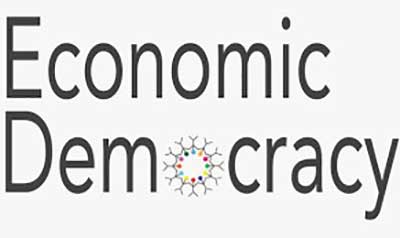Relevance: GS-3: Indian Economy and issues relating growth, development and employment
Key Phrases: World Bank, Decentralization- political, administrative and fiscal, 73rd Constitutional Amendment Act, Scheme-based transfers, Economic Democracy
Context:
- Even after seven decades of Independence, India remains very far from achieving Economic Democracy.
- Although good progress is made with political democracy, challenges remain with economic democracy.
- This is reflected in huge spatial disparities between lagging and leading regions, with more than 100 million people living in poverty in the lagging regions. India needs a level-playing field to promote economic democracy.
- According to the World Bank, it is important to improve economic democracy at all levels of the government for effective delivery of public services and to keep the government accountable.
Means to Achieve Economic Democracy
- Decentralization has long been recognised as an efficient instrument for promoting economic democracy, and delivering services to meet the needs of people.
- There are three different channels for decentralization- political,
administrative and fiscal.
- Political decentralisation promotes trust and cooperation between government agencies and citizens.
- Administrative decentralisation enables authority to be shared so that local governments can design and implement programmes more appropriate to local conditions, than a centrally designed one-size-fits-all system.
- Fiscal decentralisation enables revenue-raising and expenditure powers across different levels of government to create a level-playing field.
Assessment of the Process Decentralization In India
- India has made huge progress with political decentralisation, but challenges remain with fiscal and administrative decentralisation.
- In 1992, India passed 73rd Constitutional Amendment Act, also known as the Panchayat Raj Act, which -*not only accelerated decentralisation but also began the process of eliminating gender inequality, by requiring one-third seat reservation for women in the local governance bodies.
- Thus, India is politically decentralised, but fiscal and administrative decentralisation remains lopsided.
Underlying Challenges in Achievement of Economic Democracy
Fiscal Decentralisation Issues
- State governments are responsible for spending more than 50 per cent of total government expenditure, but most of it goes towards interest payments and salaries, leaving little room for development initiatives.
- Lagging States do receive higher per capita fiscal transfers, when these transfers are explicit transfers. However, discretionary transfers largely go to the richer States.
- Fertiliser subsidies, for example, benefit richer regions much more than poorer regions. There is a great deal of room for creating a level-playing field between leading and lagging regions through fiscal decentralisation.
- Similarly, transfers from the Central Government to state governments tend to be skewed toward richer States, the most illustrative examples being India’s discretionary schemes.
Administrative Decentralisation Issues
- The advantages of better local information and monitoring have been offset by weak capacity, local capture and corruption.
- Empirical evidence does not support a consistent positive relationship between the degree of administrative decentralisation and investment in people’s education and health, which is the best indicator of public service delivery.
- Under the present arrangement, panchayats make no contribution to the design of the schemes and are given little discretion in implementation. They also have limited autonomy over their staff
Way Forward: How to Achieve Economic Democracy?
- India needs-shift from scheme-based transfers into broad programmes to increase rural livelihoods, and provide resources and expenditure responsibility to attract and hold the interest of the local community.
- Simply directing financial resources to backward regions may not be sufficient and will need to be complemented with improved capacity, accountability, and participation at the local level, so that lagging regions can make full use of these resources
- Given the fast pace of India’s urbanisation, the decentralisation agenda need to be better aligned with the urbanisation agenda, that is availability of clean drinking water, public transport, treatment of wastewater or affordable housing.
- The local governments must have autonomy and sufficient resources to provide meaningful services to their communities.
Mains Question:
Q. The 1991 economic reforms have brought capitalism and wealth creation at the center while economic democracy has been relegated to the periphery. Do you agree? (10 marks)
Source: The Hindu BL







